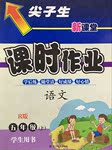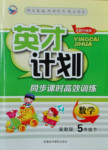题目内容
I’ve always had strong opinions of how love should be expressed, but others had their own ways of showing care.
What I 36 most about visiting my boyfriend’s parents is the loud tick of the clock in the dining room as we 37 ate our meal. With so little conversation I was quick to 38 his family as cold. When we got into the 39 to go home, his father suddenly appeared. 40 , he began to wash his son’s windscreen. I could feel he was a caring man through the glass.
I learned another lesson about love a few years later. My father often 41 me early in the morning. “Buy Xerox. It’s a good sharp price,” he might say when I answered the phone. No pleasant 42 or inquiry about my life, just financial instructions. This manner of his 43 me and we often quarreled. But one day, I thought about my father’s success in business and realized that his concern for my financial security lay behind his 44 morning calls. The next time he called and told me to buy a stock, I 45 him.
When my social style has conflicted with that of my friends, I’ve often felt 46 . For example, I always return phone calls 47 and regularly contact with my friends. I expect the same from them. I had one friend who rarely called, answering my messages with short e-mails. I rushed to the 48 : She wasn’t a good friend! My anger 49 as the holidays approached. But then she came to a gathering I 50 and handed me a beautiful dress I had fallen in love with when we did some window-shopping the previous month. I was 51 at her thoughtfulness, and regretful for how I’d considered her to be 52 . Clearly I needed to change my expectations of friends.
Far too often, I ignored their 53 expressions, eagerly expecting them to do things in my 54 . Over the years, however, I’ve learned to 55 other persons, love signs.
1.A. remember B. enjoy C. value D. admire
2.A. excitedly B. nervously C. silently D. instantly
3.A. regard B. treat C. take D. think
4.A. bus B. train C. car D. plane
5.A. Punctually B. Carefully C. Proudly D. Coldly
6.A. visited B. interrupted C. warned D. telephoned
7.A. greeting B. meeting C. apology D. explanation
8.A. interested B. angered C. encouraged D. surprised
9.A. long B. short C. warm D. polite
10.A. praised B. remembered C. blamed D. thanked
11.A. content B. guilty C. curious D. disappointed
12.A. in order B. in turn C. without delay D. without difficulty
13.A. feeling B. suggestion C. judgment D. belief
14.A. disappeared B. grew C. helped D. declined
15.A. opened B. refused C. hosted D. invited
16.A. depressed B. upset C. fascinated D. shocked
17.A. uncaring B. dishonest C. unhappy D. uncooperative
18.A. unique B. common C. pleasant D. familiar
19.A. opinion B. way C. mind D. life
20.A. send B. read C. give D. express
1.A
2.C
3.A
4.C
5.B
6.D
7.A
8.B
9.B
10.D
11.D
12.C
13.C
14.B
15.C
16.D
17.A
18.A
19.B
20.B
【解析】略

 尖子生新课堂课时作业系列答案
尖子生新课堂课时作业系列答案 英才计划同步课时高效训练系列答案
英才计划同步课时高效训练系列答案Walking down a path through some woods in Georgia, I saw a small pool of water ahead on the path.I angled my direction to go around it on the part of the path that wasn't covered by water or mud.As I reached the pool, I was suddenly attacked! Yet I did nothing for the attack.It was so unpredictable and from somewhere totally unexpected.I was surprised as well as unhurt though I had been struck four or five times.I backed up a foot and my attacker stopped attacking me.Had I been hurt I wouldn't have found it amusing.And I was laughing.After all, I was being attacked by a butterfly!
Having stopped, laughing, I took a step forward.My attacker rushed me again.He charged towards me at full speed, attempting to hurt me but in vain.For a second time, I took a step backwards while my attacker paused.I wasn't sure what to do.After all, it's just not everyday that one is attacked by a butterfly.I stepped back to look the situation over.My attacker moved back to land on the ground.That's when I discovered why my attacker was charging me only moments earlier.He had a mate and she was dying.
Sitting close beside her, he opened and closed his wings as if to fan her.I could only admire the love and courage of that butterfly in his concern for his mate.He had taken it up on himself to attack me for his mate's sake (缘故), even though she was clearly dying and I was so large.He did so just to give her those extra few precious moments of life, should I have been careless enough to step on her.His courage in attacking something thousands of times larger and heavier than himself just for his mate's safety seemed admirable.I couldn't do anything other than reward him by walking on the more difficult side of the pool.He had truly earned those moments to be with her, undisturbed.
Since then, I've always tried to remember the courage of that butterfly whenever I see huge barriers facing me.
【小题1】Why did the writer change his direction while walking down a path?
| A.To get close to a butterfly. | B.To look over the bad situation. |
| C.To escape a sudden attack. | D.To avoid getting his shoes dirty. |
| A.Making the attacker pause. | B.Being attacked by a butterfly. |
| C.Being stepped on by his mate. | D.Discovering the energetic butterfly. |
| A.what he should do when faced with trouble | B.people should show sympathy to the weak |
| C.how he should deal with attacks | D.people should protect butterflies |
| A.Careless. | B.Amusing. | C.Courageous. | D.Aggressive. |
In the kitchen of my mother's houses there has always been a wooden stand with a small notepad and a hole for a pencil.
I'm looking for paper on which to note down the name of a book I am recommending to my mother. Over forty years since my earliest memories of the kitchen pad and pencil, five houses later, the current paper and pencil look the same as they always did. Surely it can't be the same pencil. The pad is more modern, but the wooden stand is definitely the original one.
"I'm just amazed you still have the same stand for holding the pad and pencil after all these years." I say to her, walking back into the living-room with a sheet of paper and the pencil. "You still use a pencil. Can't you afford a pen?"
My mother replies a little sharply. "It works perfectly well; I've always kept the stand in the kitchen. I never knew when I might want to note down an idea, and I was always in the kitchen in these days. "
Immediately I can picture her, hair wild, blue housecoat covered in flour, a wooden spoon in one hand, the pencil in the other, her mouth moving silently. My mother smiles and says, "One day I was cooking and watching baby Pauline, and I had a brilliant thought, but the stand was empty. One of the children must have taken the paper. So I just picked up the breadboard and wrote it all down on the back. It turned out to be a real breakthrough for solving the mathematical problem I was working on."
This story, which happened before I was born, reminds me how extraordinary my mother was, and is also a gifted mathematician. I feel embarrassed that I complain about not having enough child-free time to work. Later, when my mother is in the bathroom, I go into her kitchen and turn over the breadboards. Sure enough, on the back of the smallest one, are some penciled marks I recognize as mathematics. Those symbols have traveled unaffected through fifty years, rooted in the soil of a cheap wooden breadboard, invisible exhibits at every meal.
【小题1】Why has the author's mother always kept the notepad and pencil in the kitchen?
| A.To leave messages. |
| B.To list her everyday tasks. |
| C.To note down math problems. |
| D.To write down a flash of inspiration. |
| A.It has great value for the family. |
| B.It needs to be replaced. |
| C.It brings her back to her lonely childhood. |
| D.It should be passed on to the next generation. |
| A.blaming her mother wrongly |
| B.giving her mother a lot of trouble |
| C.not making good use of time as her mother did |
| D.not making any breakthrough in her field |
| A.The mother is successful in her career. |
| B.The family members like traveling. |
| C.The author had little time to play when young. |
| D.The marks on the breadboard have disappeared. |